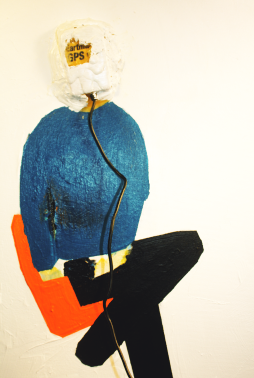the fetishization of location

The ubiquity of geolocation enabled devices, the increasingly complex infrastructure that enables them, and the noticeable pressure to associate even the most mundane of activities with a digital, geo-specific record are all indicative of our transition to a fetishization of location. We have witnessed as well the simultaneous commodification of personal location data -- and, by proxy, our own selves -- with applications that encourage (demand) we check in, tweet, or tag our instantly shared images and text.
The technology that we have created and invited into that very private realm of our bodies in a specific being-in-time-and-place is not altogether without its uses. Its efficacy in emergency situations is undeniable. Nor is it without its merits as material in the creative process. However, we should be wary not only of the obvious big brother externalities of persistent and personal locational data but also of the pycho-physical and spiritual ramifications.
We are fundamentally creatures of place and relationships. As such, we are well-suited for deliberate acts of association and the constituting of memories peculiar to place and the human-to-human interactions that occur therein and there-when. The proliferation of data extracted and disassociated from such deliberate acts cheapens the process and dilutes our collective consciousness of all such activities. Increased awareness of who was where and when, when processed through the dissociating mechanisms of technology, undermines our ability to deliberately construct future associations. We run the risk, then, of being trapped in a reality that, despite being quantitatively broader is qualitatively shallow and unfulfilling.
Comments

12 years, 2 months
12 years, 2 months

To comment, please create a Memefest account, it will take you only 2 minutes! Login here if you already have one.